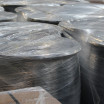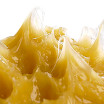Q&A Articles
Isel Launches NXT Refrigeration Line
For more than 23 years, Isel’s unique approach to lubricant manufacturing has combined detailed knowledge of refrigeration systems with one of the most agile lubricant production methods available. Today,...
What Is GHS and How Does Isel Comply?

OSHA (Occupational Safety & Health Administration) recently updated their Hazard Communication Standard to conform with the United Nations’ Globally Harmonized System of Classification and Labeling of Chemicals (GHS). These updated...
Q: How Can Tiny Dust Particles In A Lubricant Harm Machinery?

A: Although they may seem harmless, tiny dust particles can be damaging to machinery. Their surface can be very rough with sharp, jagged edges that scratch and dent metal...
Q: What Factors Can Affect The Shelf Life Of A Lubricant In Storage?

A: Extreme heat or cold, fluctuating temperatures, moisture/humidity, dust and dirt can shorten the life span of stored lubricants. For this reason, it is prudent to: Purchase lubricants in...
Q: How Does Compressor Operating Temperature Affect Lubricant Life?

A: Increases in operating temperature and/or environmental temperature accelerate the pace of oxidation, the chemical reaction between a lubricant and oxygen that “ages” the lubricant and diminishes its service...
Q: What Is The Difference Between The Food-Grade Lubricant Classifications H1, H2 And H3?

A: These classifications distinguish different types of food-grade lubricants by what they may/may not contain and how they may be used. H1 lubricants may be used in applications where...
Q: How Frequently Should Used Oil Be Changed?

A: That factor depends not only on the oil itself, but also the application and operating conditions. A lubricant’s service life can be affected by many factors, such as...
Q: How Does A Lubricant Reduce Friction And Wear Between Moving Solid Surfaces?

A: Before answering this question, let’s look at how friction and wear occur between moving machine parts. Solid surfaces that appear smooth and polished to the naked eye are...
Q: Is It Possible To Prevent The Oxidation Of A Lubricant?

A: Oxidation, the chemical reaction between a lubricant and oxygen, cannot be avoided, but you can slow its progression. Since heat is a major catalyst that tends to hasten...
Q: Is NLGI Grade Essentially The Same As Viscosity?

A: No. NLGI grade (named for the National Lubricating Grease Institute that developed the grading system), is primarily a function of the thickener used in the grease formulation. Meanwhile,...